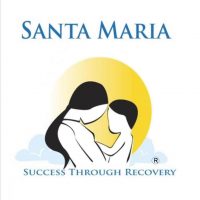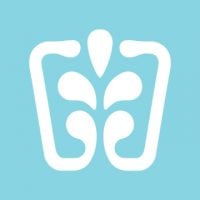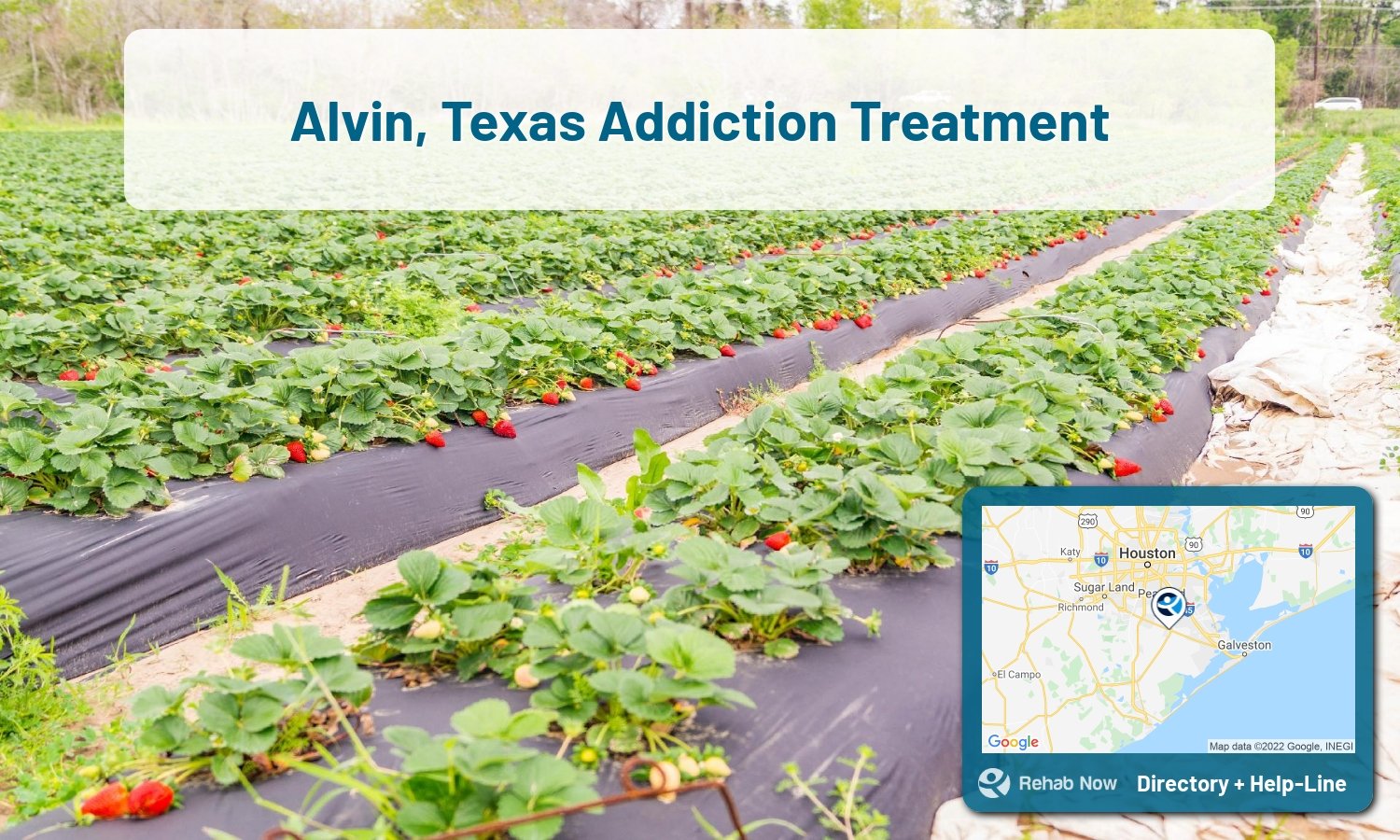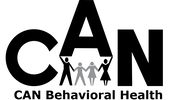Alcohol and Drug Rehabilitation Recovery Programs in Alvin, Texas
In Alvin, Texas, there is a big problem with drug addiction and abuse. Many people in this city struggle with addiction, and it is a major issue. The main drugs that are abused include alcohol, marijuana, cocaine, heroin, and methamphetamine. The users of these drugs are often young people, and they often come from lower-income families.
There are many different factors that contribute to drug addiction and abuse. One of the most important factors is peer pressure. Young people feel like they need to use drugs to fit in. Another factor is easy to access to drugs. In Alvin, Texas, drugs are easy to find and purchase. Finally, some people use drugs to cope with stress or other problems in their lives.
Here, we list many of the best drug treatment facilities and centers in Alvin, most of them with their own unique qualities. There are opportunities for recovery and improved life in Texas with numerous drug and alcohol addiction programs available in Alvin.
You’re not in this alone, call an admissions expert.
We will help you find treatment based on your location, budget, and specific needs and help you get started safely.
Free + Confidential Consultation
Browse 4 Centers in Alvin, Texas

Santa Maria Hostel is a substance abuse and mental health treatment center in Alvin, TX, offering evidence-based treatments and therapies tailored to the individual needs of each patient, ranging from inpatient residential treatment to intensive outpatient and aftercare services.


- OP
- IOP
- Inpatient
- Dual-Diagnosis
- Aftercare

Gulf Coast Center - Northern Brazoria is an addiction treatment facility in Alvin, Texas that provides comprehensive care to individuals with addiction and mental health issues through individualized treatment plans and evidence-based therapies.
- OP
- Inpatient
- Dual-Diagnosis

Alvin Taylor Street Club
Alvin Taylor Street Club provides outpatient addiction treatment and aftercare support to individuals looking for recovery in Alvin, Texas.
- OP
- Aftercare
Santa Maria Hostel - Alvin
Drug & Alcohol Rehab Facilities near Alvin, Texas

Information About Substance Abuse and Addiction in Alvin, TX
Alvin is also home to a number of substance abuse and addiction treatment facilities. These facilities provide services to help those struggling with addiction get the treatment they need.
Treatment options vary depending on the facility but may include individual and group counseling, 12-step programs, and other evidence-based therapies.

What types of treatment are available in Alvin, Texas?
There are many different treatment options available for people who struggle with addiction in Alvin, Texas. There are inpatient and outpatient treatment facilities, 12-step programs, and sober living homes.
Inpatient treatment facilities provide 24-hour care and supervision. These programs typically last for 30 days, but some may be shorter or longer depending on your needs.
Outpatient treatment facilities provide a less intensive level of care. These programs typically meet for a few hours each week and may last for several months.
12-step programs, such as Alcoholics Anonymous and Narcotics Anonymous, are peer-support groups that follow a specific set of steps for recovery.
Sober living homes are group homes for people in recovery. These homes typically have strict rules, such as no drugs or alcohol on the premises, and residents are typically required to participate in house meetings and chores.
Drug and Alcohol Statistics in Alvin, Texas
In Alvin, Texas, the rate of drug and alcohol use is higher than the national average. The rate of past-month alcohol use for people aged 12 and up is 16.4%. According to a survey from 2017, the rate of past-month marijuana use for people aged 12 and up is 10.2%.
In terms of drug overdose deaths, Alvin, Texas ranks number 4 in the county. In 2017, there were a total of 37 drug overdose deaths in Alvin. Most of these overdose deaths were caused by opioids, such as heroin and fentanyl.
- There are about 300 people admitted to drug and alcohol rehab centers in Alvin each year.
- About 60% of people in Alvin, who are admitted to rehab centers involve alcohol.
- 32% of addicts in Alvin are addicted to opioids.
- 26% of addicts who use opioids(like heroin) began using after being prescribed painkillers.
Additional Treatment Centers in Texas
Texas is one of the primary hubs for drug smuggling into the country. The border between Texas and Mexico is more than 1,000 miles long. More than 10 million residents use alcohol every year and more than 25% of those are minors. Alcohol and drug use has become so common in Texas that almost 15% of all deaths can be attributed to these substances.
Still haven't found the right recovery center? Browse nearby Texas cities.
- Angleton, TX (20.5 mi.)
- Clute, TX (28.8 mi.)
- Mount Pleasant, TX (259.0 mi.)
- Fort Stockton, TX (467.4 mi.)
- Las Animas, TX (752.9 mi.)
- Ralls, TX (466.2 mi.)
- Colorado City, TX (391.3 mi.)
- Sheppard Afb, TX (368.5 mi.)
- Brownsville, TX (279.6 mi.)
- Mc Kinney, TX (273.9 mi.)
- Marshall, TX (222.4 mi.)
- Jasper, TX (128.0 mi.)
- Houston, TX (227)
- Dallas, TX (120)
- San Antonio, TX (108)
- Austin, TX (104)
- Fort Worth, TX (85)
- El Paso, TX (44)
- Lubbock, TX (34)
- Corpus Christi, TX (31)
What is included in drug rehab?
The first step in addiction treatment is detox. This is when you stop using drugs and alcohol and allow your body to cleanse itself of the toxins. Detox can be a difficult process, and it is important to have medical supervision during this time.
After detox, you will begin therapy. Therapy can help you understand the underlying causes of your addiction and learn how to cope with triggers and cravings. You will also learn skills to help you live a sober life.
Most rehab programs also include some form of group therapy. This is where you will share your experiences with other people who are struggling with addiction. This can be a valuable experience, and it can help you see that you are not alone.
Finally, aftercare is an important part of addiction treatment. This is when you transition back to your life outside of rehab. Aftercare can include things like sober living facilities, outpatient therapy, and 12-step meetings.
What are the rules and restrictions of rehabilitation facilities?
When you are in rehab, you will be expected to follow the rules of the facility. These rules are in place to help you stay focused on your recovery. Some of the rules may include:
- No drugs or alcohol are allowed on the premises
- Curfew
- Mandatory participation in therapy and group meetings
- Random drug testing
If you violate the rules of the facility, you may be asked to leave.
How long does it take to recover from addiction?
The length of time it takes to recover from addiction varies from person to person. It depends on a number of factors, including the severity of your addiction, your motivation to change, and your support system.
Recovery is a journey that looks different for everyone. Some people may be able to achieve sobriety within months of intensive treatment, while others may need years of ongoing support.
The most important thing is that you are willing to commit to the process and take it one day at a time.
Do I need to attend general or faith-based addiction treatment?
Both types of programs can be effective, but there are some important differences to consider. General addiction treatment programs typically focus on helping people to develop coping and problem-solving skills. These programs may also provide medication-assisted treatment and other evidence-based therapies.
Faith-based treatment programs, on the other hand, focus on helping people to develop a relationship with God or another Higher Power. These programs typically incorporate prayer and worship into their treatment approach.
Ultimately, the decision of whether to attend a general or faith-based treatment program is a personal one. It is important to choose a program that you feel comfortable with and that you believe will be helpful for your recovery.
Which is best between rural or urban addiction treatment?
Rural addiction treatment centers tend to be more intimate settings, providing a tight-knit community for clients to recover. Additionally, these centers are often located in scenic areas, which can provide a much-needed sense of peace and calm during the treatment process. However, rural areas may also have limited resources, which could make it difficult to find the right kind of treatment.
Urban addiction treatment centers, on the other hand, are typically located in close proximity to a variety of resources, such as public transportation, hospitals, and sober living facilities. These centers also tend to offer a wide range of treatment options, making it easier to find a program that meets your needs. However, urban areas can also be noisy and fast-paced, which may not be ideal for everyone.
What types of therapies are used in addiction treatment?
There are a variety of different therapies that can be used in addiction treatment. These include cognitive-behavioral therapy, dialectical-behavioral therapy, and motivational interviewing.
Cognitive-behavioral therapy is a type of therapy that helps people to identify and change negative thought patterns.
Dialectical-behavioral therapy is a type of therapy that helps people to develop skills for managing emotions and dealing with stressful situations.
Motivational interviewing is a type of therapy that helps people to explore their ambivalence about change and to develop the motivation to make necessary changes.
Your treatment team will work with you to determine which therapies are best for you based on your needs.
Drug rehab and alcohol treatment services nearby Alvin, TX. Need help choosing a treatment program? Call our free hotline! (888) 674-0062.



